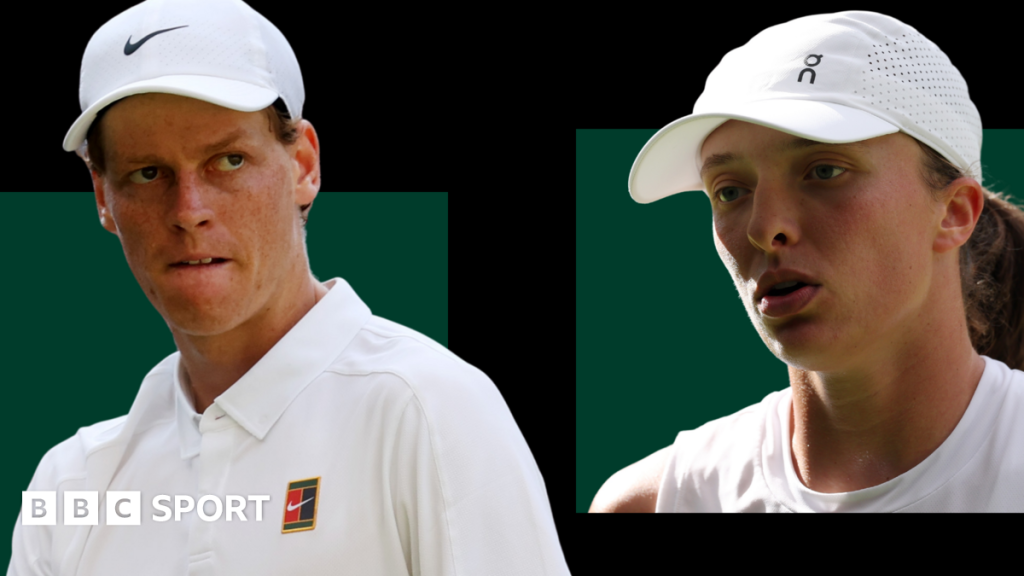
In the wake of Swiatek’s punishment, Simona Halep was one of several players who questioned the differences in how doping cases were treated.
In 2023, the Romanian had received a four-year ban for two anti-doping violations, later reduced to nine months after an appeal.
Reflecting on both cases in December, Kyrgios said: “I think people are trying to sweep it under the rug. I just think that it’s been handled horrifically in our sport. Two world number ones both getting done for doping is disgusting for our sport. It’s a horrible look.”
In the wake of Sinner’s suspension, former British number one Tim Henman claimed the ban was “too convenient” and left tennis fans with a “pretty sour taste”.
“When you’re dealing with drugs in sport it very much has to be black and white, it’s binary, it’s positive or negative, you’re banned or you’re not banned” he told Sky Sports.
“When you start reading words like settlement or agreement, it feels like there’s been a negotiation and I don’t think that will sit well with the player cohort and the fans of the sport.”
Serena Williams said she would have been banned for 20 years and had some of her Grand Slam titles taken away if she had committed the same anti-doping offence as men’s world number one Sinner.
British player Tara Moore, who was provisionally banned for two years while challenging a doping charge of which she was eventually cleared after 19 months, also suggested top players were “treated differently”, with their image prioritised.
Accusations of preferential treatment were firmly disputed by the ITIA and Wada, but many believe both players have benefitted from being able to pay top lawyers to act quickly.
“A majority of the players don’t feel that it’s fair,” said 24-time Grand Slam champion Novak Djokovic. “It appears that you can almost affect the outcome if you are a top player, if you have access to the top lawyers.”
The Professional Tennis Players’ Association (PTPA) – an organisation co-founded by Djokovic which aims to increase player power – said there is a lack of “transparency”, “process” and “consistency” in the system.
Three-time Grand Slam champion Stan Wawrinka, writing on social media, said he did not “believe in a clean sport any more”.








